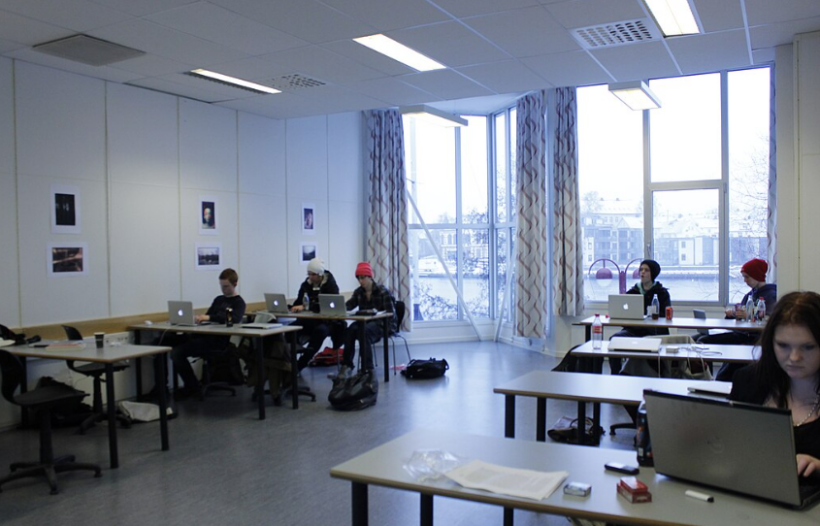According to Statistics Canada, student enrolment in the humanities has been declining since 2008. For all postsecondary students, humanities enrolments have dropped by 50 percent over the past 30 years. However, this phenomenon is not isolated to Canada. According to various OECD data, the lack of interest in the humanities is a phenomenon spread across 24 countries in the world.
(…) Between 2015 and 2018, the share of bachelor, master, and doctoral degrees awarded in humanities fields fell 5%, 11%, and 9% respectively on average with drops of varying proportions detected in 24 of the 36 OECD countries. In the US, the proportion of undergraduate students studying the humanities tumbled approximately 30% between 2005 and 2020, while the United Kingdom government recently announced in 2021 its intention to reduce funding for arts, social sciences, and humanities degrees it now deems “low value. (Source: OECD statistics data)
According to Rob Townsend, director of the humanities, arts, and culture program at the AAA&S (American Academy of Arts and Sciences) in the US
“We’re reaching a kind of existential tipping point for a lot of departments that could lead to their elimination.” (Globe and Mail, Why business needs the humanities: Focusing on STEM degrees and economic cost).
Even as overall postsecondary enrolments have dramatically grown, the humanities have continued to shrink. Meanwhile, the enrolment of students around the world in business, administration, science and technology, and computer science studies is increasing.
This situation is not surprising since the government prioritized specialized training in STEM and trade (science, technology, engineering, and mathematics) over the last few decades over general knowledge and humanities. The dominant ideology has neglected history, literature, art, and “ideas” given that these human activities generate low-value income according to shareholders that are investing in higher educational programs.
Why should the humanities be prioritized?
In his book Sensemaking: The Power of the Humanities in the Age of the Algorithm, Christian Madsbjerg identifies various competencies and skills cultivated in humanities such as communication, collaboration among pairs, intercultural awareness, learning to communicate point of view, and acquiring mental flexibility.
He argues that “our fixation with data often masks stunning deficiencies and sensibilities, and is an enormous risk for humankind. The educational system has become subservient to algorithms”
Today more and more programs are based on algorithms and ways of thinking and learning, step by step. Humanities cultivated other skills that are essential to maintain democratic systems and societies based on human rights and diversity.
Humanities develop a special sensitivity and through understanding various ways visual, material, and – in the contemporary immaterial and digital world – they explore the expressions that are creating meaning in the world, and how those meanings contribute to our social, political, and spiritual life. Moreover in many humanities programs student experience is decisive and provides a learning process that is fundamental for critical thinking and self-knowledge.
By neglecting the Humanities, a few decades ago, most Western countries participated in the suppression of various lines of thinking and the suppression of various important points of view on human activities. This tendency coupled with the increasingly rapid dissemination of destructured information and polarization of point of view may generate greater difficulties in the comprehension of complex social and cultural issues. Since processes that take place in the individual consciousness also happen in large human groups, it’s possible that in future societies a massive number of individuals will be ignorant of history, philosophy, literature, and ethnicity.
This situation may generate difficulties as a whole, as a society, to advance and reflect on various processes and complex issues that demand human skills and a special sensibility. The future generations may be less able to apply ethical frameworks to advances in machine learning, biotechnology and nanomedicine. They will be less able to communicate without the assistance of machines, which will eventually think of them.
Possible solutions
Leaders must understand that educational programs are a fundamental element in the development of people and societies. Today’s leaders and government must prioritize Humanities. The future generation must be able to obtain the tools to understand the world in which they live and be able to act and change the world according to their aspirations.
For Aguilar and Bize, education is the noblest of human activities because “it” is at the forefront of the evolutionary direction of the human being. Mario Aguilar and Rebeca Bize are the authors of the book Pedagogy of Intentionality Educating for Active Consciousness. Bize is a researcher and professor at the University of Santiago de Chile while Aguilar was a teacher and the spokesperson for a large teachers’ union in Chile.
An education that focuses mainly on specialization can be interesting from the point of view of the job market, but in the long term, it serves mainly the interests of companies and corporations and may disrupt societies as a whole.
Only States can address the current enormous educational inequities across gender, race/ethnicity/origin, social class, disability, and many other forms of exclusion. Moreover, the conception of “quality” in education must extend beyond workforce creation and attaining narrow learning metrics. Education technology must not displace teachers and depersonalize learning, nor supplant free, quality, public education provided in school settings. Instead, quality education must address broader human rights objectives, including the full development of the human personality, and foster skills for learners to meet today’s global challenges as informed, critical, and active citizens. (Pressenza)
* American Academy of Arts and Sciences is one of the oldest learned societies in the United States. It was founded in 1780 during the American Revolution by John Adams, John Hancock, James Bowdoin, Andrew Oliver, and other United States Founding Fathers.






